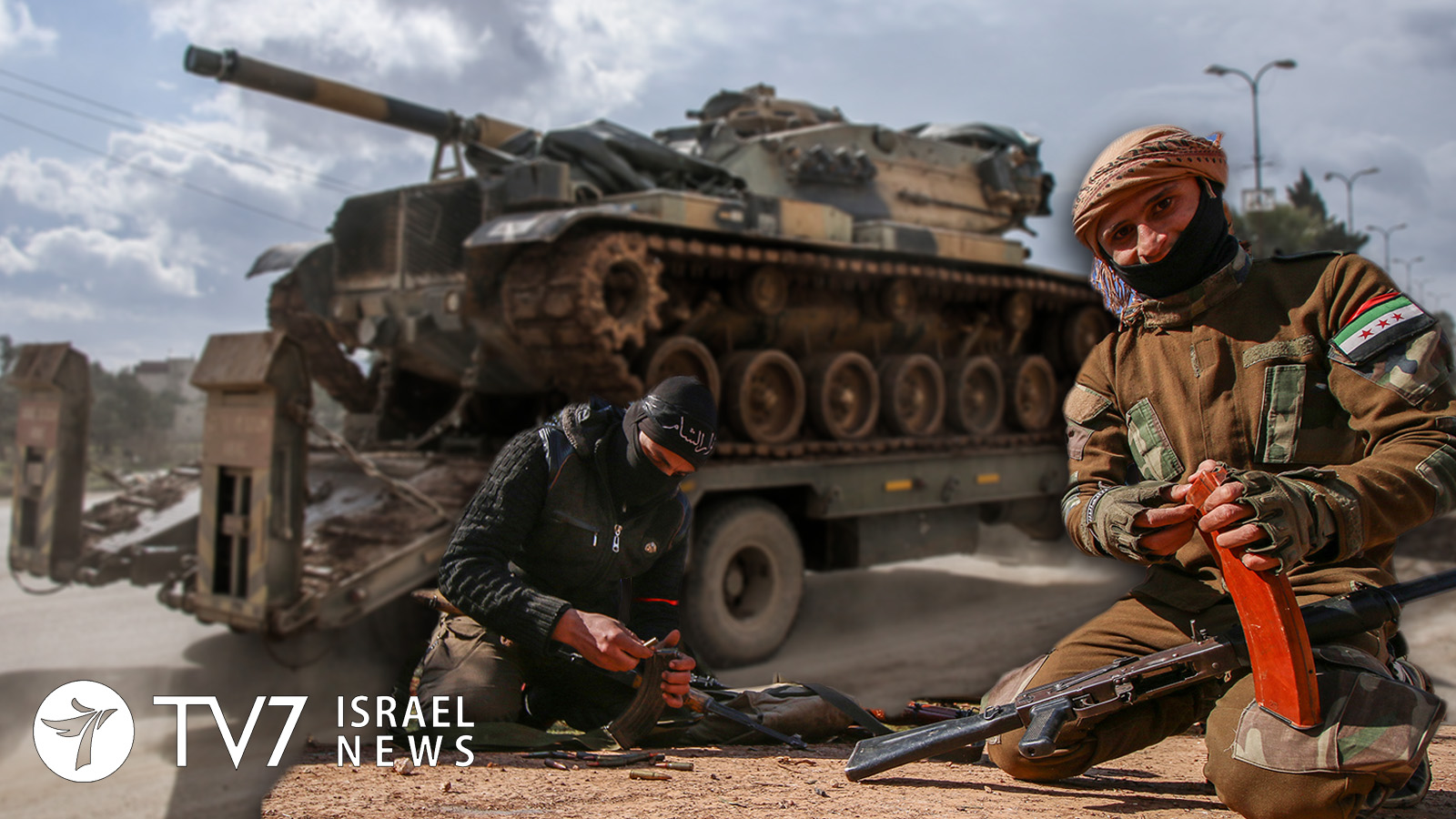Tensions continue to mount in Syria’s northwestern Idlib region, as regime forces backed by Iranian-proxy militias and Russian air support continue to make rapid advances while the Turkish military is bolstering its presence ahead of what may be an imminent counteroffensive.
“We will continue the deployment and fortification of troops in the area to ensure the safety of the region (Idlib) and the civilians there,” said Turkish Presidential Spokesman Ibrahim Kalin. He also noted that so far ongoing talks between Ankara and Moscow officials remain unsatisfactory, revealing that Ankara “did not accept the map and the paper” that was offered.
Prior to attending his Justice and Development (AK) Party’s parliamentary group meeting, Turkish Defense Minister Hulusi Akar said Russian demands that his nation withdraw from Idlib “is out of the question,” and vowed that there would be fierce retaliation for “any attack on Turkish observation posts” in the area. Ankara’s top defense chief then underscored that “we expect the parties [in Idlib] to rapidly comply with their commitments under the Sochi deal – such that a ceasefire could be achieved and bloodshed can be stopped. We have complied and we expect the other parties to do the same.”
Moscow reacted to the latest saber-rattling from Ankara with a warning that warned that a Turkish military operation against Syrian government forces in Idlib could be disastrous. “If it is about operation against legitimate Syrian authorities and Syrian army,” cautioned Kremlin Spokesman Dmitry Peskov, “it would be the worst-case scenario.” Peskov further emphasized that Turkey is compelled to carry out the “neutralization” of rebel forces to whom he referred to as “terrorist groups,” who currently possess powerful infrastructure, weaponry, hardware and ammunition” in accordance with the 2018 Sochi Agreement.
Despite claims of an impasse in the Syrian talks being held in Moscow, a Russian source informed TV7 that some progress has been achieved.
Meanwhile, French President Emmanuel Macron is insisting that the US military pull-out from Syria is the key reason for Russia’s increased dominance in the war-torn country. During an address at the Munich Security Conference earlier this week, the French leader said, “The American withdrawal, even if it was corrected retrospectively, I think was an error in Syria – because it allowed other powers to fill that space.” He then analogized that the situation has historically been untenable, adding “And in the same way, we let them advance in many fields of operation – and as they felt we were weak, they did what they did in Ukraine.”
In related news, France is seemingly stepping up efforts to combat the Islamic State. After an inspection of the Charles de Gaulle aircraft carrier in the East Mediterranean Sea, which is taking part in the U.S.-led coalition against the Jihadist organization French Defense Minister Florence Parly said that ISIS “is still very present and is even gaining strength.” She added that the Islamic State is particularly making a “resurgence” in territories which have been reconquered by the Syrian regime, which she said is unable to effectively combat the radical Islamist groups. “We have also seen that around Deir al-Zor,” she stressed, adding “And we have also seen it in Iraq where the political instability over the last several months offers the perfect conditions for Islamic State to secretly build up its forces in desert or mountain zones.
“So, the fight against Islamic State is not over,” the French Defense Minister declared in no uncertain terms, but “quite the contrary.”
While the Charles de Gaulle Strike Group is primarily tasked with aerial reconnaissance missions amounting to about 20% of the U.S.-led coalition operations, its Commander Rear Admiral Marc Aussedat voiced readiness to assume a greater role. ”Since we have been in the Mediterranean, we have conducted an average of six sorties a day for OIR (Operation Inherent Resolve – U.S.-led mission against Islamic State), for Operation Chammal (the French name for the mission),” revealed Admiral Aussedat. “We haven’t carried out airstrikes yet, but we are always ready – and that is the role of this reinforcement mission.”
“All our planes leave armed and are ready if needed in the field to strike where coalition troops are involved in the fight against Islamic State,” said the Charles de Gaulle Strike Group Commander.
